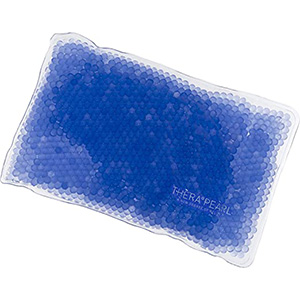Vasectomy is a sterilization procedure that stops sperm from reaching the semen that is ejaculated and does not affect the way the sexual organs work. Once the initial post-vasectomy recovery period is over, there should be no impact on sexual function. The only thing that will change is your ability to get your partner pregnant. You will still feel like a man, and the procedure won’t alter your voice, muscles, libido, erections, or orgasms. In fact, some men report improved sexual satisfaction since they longer have to worry about an accidental pregnancy.
How soon after vasectomy can I have sex?
Most doctors recommend waiting at least a week before resuming protected intercourse. Having sex too soon after your vasectomy can delay your recovery and cause unnecessary pain or even an infection.
Suggested readingWhat about masturbation or oral sex?
If your doctor instructs you to wait a week before sex, it’s best to do the same before masturbation, oral sex, or any other sexual activity. Any type of ejaculation will involve muscle contractions, which may aggravate the wound. With oral sex, there is an increased risk of infection, as oral bacteria can contaminate the incision.
Suggested readingHow long until it’s safe to have unprotected intercourse?
It can take up to 3 months to be declared sperm-free after a vasectomy1. So even when you’re ready to start having sex again, you need to keep using contraception until you received the “all clear” from your doctor after the post-vasectomy semen analysis. Also, it’s important to note that a vasectomy does not protect you or your partner against sexually transmitted diseases.
Suggested readingIt’s estimated that up to 42% of men never go back for a semen analysis after their vasectomy.2 This lack of follow-up testing is one of the most common causes of an unexpected post-vasectomy pregnancy.
Recommended product
Home Vasectomy Test Kit
 View on Amazon Read our review We only recommend products we think are useful for our readers. If you make a purchase, we may earn a small commission.
View on Amazon Read our review We only recommend products we think are useful for our readers. If you make a purchase, we may earn a small commission.How will my ejaculations change after a vasectomy?
Your ejaculations will be pretty much the same as they were before your procedure. You won’t emit blood or water or a puff of dust. You’ll still produce ejaculatory fluid, and it’s going to look and feel just like it did before the operation.
The only thing that really changes about your semen after a vasectomy is that it no longer contains sperm. Sperm only accounts for 2% to 5% of the volume of a man’s ejaculate3, so you’re not going to notice a difference once it’s gone. In fact, it’s probably safe to assume your ejaculations naturally varied that much based on fluid intake, diet, etc.
The force of your ejaculations will also remain unchanged after your vasectomy. The plumbing responsible for that sort of thing is unaffected by the procedure, so there’s nothing that will be stopping or slowing the release of semen.
Will ejaculations be painful after a vasectomy?
Your ejaculations should not be painful after a vasectomy. However, ejaculation involves a number of strong muscle contractions in the genital area, which means having an orgasm could be uncomfortable if the patient is still experiencing swelling, bruising, or tenderness. This is why doctors often recommend waiting a week or more before resuming sexual activity.
Recommended products for recovery
We only recommend products we think are useful for our readers. If you make a purchase, we may earn a small commission. JockstrapsPapi Men’s Cotton Jock Strap 3-Pack
JockstrapsPapi Men’s Cotton Jock Strap 3-Pack Ice packsTheraPearl Ice Pack with Gel Beads
Ice packsTheraPearl Ice Pack with Gel Beads Home Vasectomy TestSpermCheck Vasectomy Test Kit
Home Vasectomy TestSpermCheck Vasectomy Test Kit Donut-shaped pillowErgonomic Innovations Orthopaedic Seat
Donut-shaped pillowErgonomic Innovations Orthopaedic Seat
If you experience uncomfortable orgasms beyond the doctor’s recommended waiting period, consult with your doctor immediately, as that can be an indication that something isn’t right.
Do you still feel pleasure after a vasectomy?
A common concern many men have regarding vasectomy is that their orgasms won’t be as strong or intense after the operation. This concern over having a “weak orgasm” is understandable, but there is simply no medical evidence suggesting that vasectomy has any effect on the intensity or duration of a man’s orgasm.
While the methods of vasectomy vary depending on the doctor performing the operation, the basic procedure is the same: a small section of the vas deferens is removed, preventing sperm from entering the ejaculate. Removing this tiny length of “plumbing” does not affect the sensitivity of the penis or the pleasure centers of the brain responsible for orgasm.
Even though the overall amount of ejaculate a man produces will be reduced by 2% to 5% after a vasectomy, that does not affect the intensity of the orgasm. Ejaculation is not what creates the pleasurable sensation felt during orgasm. Orgasmic pleasure is controlled by processes in the brain and is not a result of the physical act of ejaculation.4
It’s also important to note that this small decrease in ejaculatory volume is not enough to be noticeable by a man or his partner under casual circumstances.
Will I still feel like a man afterward?
Your testes still produce testosterone after a vasectomy so there is no reduction in your masculinity. Some early studies even indicated that vasectomized men seem to have higher levels of testosterone longer into their lives than the non-vasectomized. However, the majority of the extensive research on the subject provides strong evidence that vasectomy has no effect on testosterone or other hormones.5
Will vasectomy reduce sex drive?
There is no credible evidence indicating that a vasectomy will have a long-term effect on a man’s libido. In fact, many men report increased sexual satisfaction since they no longer have to worry about an unintended pregnancy.6
Suggested readingWill I be able to get an erection after a vasectomy?
A successful vasectomy does not affect a man’s ability to achieve or sustain an erection. If you didn’t have problems getting an erection prior to the operation, you shouldn’t have any trouble after the procedure.
If you experience any problems with erections after the operation, don’t hesitate to call your doctor. A severe complication or an underlying condition might be the reason.
Do testicles drop after a vasectomy?
Your testicles will not hang lower after the surgery, even though some diagrams suggest that the vas deferens are the only things connecting our testicles to the rest of us. In reality, the vas tubes are just one part of a complicated group of structures called the spermatic cord. The spermatic cord is not severed during a vasectomy. The spermatic cord contains arteries and veins, the cremasteric muscles (which cause your testicles to pull up when you are cold or anxious), nerves, lymphatic vessels, etc. It is these structures together that support the testicles in the scrotum. The vas deferens are thin, hard tubes mixed up in all of this, and they are the only things cut during a vasectomy.
Suggested readingWhere does sperm go after a vasectomy?
After the vasectomy, sperm cannot pass through the vas deferens and exit the body through the penis anymore. So the sperm dissolves and will be naturally reabsorbed by the body. It’s worth mentioning that sperm reabsorption is not something that occurs solely with vasectomized men. All men produce millions of sperm that do not make it to ejaculation and are reabsorbed into the body.
Suggested readingSummary
There is no evidence demonstrating that a normal, successful vasectomy has an impact on sexual performance, sex drive, orgasms, or erections. However, complications arising from a problematic vasectomy may lead to sexual dysfunction. If you are experiencing sexual issues after healing completely from a vasectomy, don’t hesitate to contact your doctor.
References and further reading
Vasectomy-Information.com has a strict sourcing policy. We rely on evidence-based medicine, peer-reviewed studies, reputable clinical journals, and medical associations. Learn more about how we ensure our content is accurate and up-to-date by reading our editorial policy.- Zini A. Vasectomy update 2010. Can Urol Assoc J. 2010;4(5):306-309. https://www.ncbi.nlm.nih.gov/pmc/articles/PMC2950776/
- Christensen RE, Maples DC. Postvasectomy Semen Analysis: Are Men Following Up? The Journal of the American Board of Family Medicine. Published online January 1, 2005:44-47. doi:10.3122/jabfm.18.1.44
- Semen. Encyclopædia Britannica. https://www.britannica.com/science/semen. Published April 11, 2015.
- Alwaal A, Breyer B, Lue T. Normal male sexual function: emphasis on orgasm and ejaculation. Fertil Steril. 2015;104(5):1051-1060. doi:10.1016/j.fertnstert.2015.08.033
- Barone MA, Pollack AE. Long-Term Risks of Vasectomy. GLOWM. Published online 2009. doi:10.3843/glowm.10409
- Mohamad A-A, Shamloul R, Ramsauer J, et al. The effect of vasectomy on the sexual life of couples. J Sex Med. 2014;11(9):2239-2242. doi:10.1111/jsm.12567
- Vasectomy | Male Urologic Health. Department of Urology at Miller School of Medicine. http://urology.med.miami.edu/specialties/male-urologic-health/vasectomy
- Ejaculation After Vasectomy. Dr. Harry Fisch, Vasectomy Surgeon, NY. Published February 27, 2018. https://harryfisch.com/ejaculation-after-vasectomy/
- Vasectomy. Johns Hopkins Medicine. https://www.hopkinsmedicine.org/health/treatment-tests-and-therapies/vasectomy
- Pre & Post Vasectomy Instructions. Department of Urology, University of Virginia School of Medicine. https://med.virginia.edu/urology/for-patients-and-visitors/mens-health/vasectomy-how-it-works/pre-post-vasectomy-instructions/